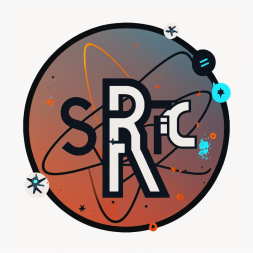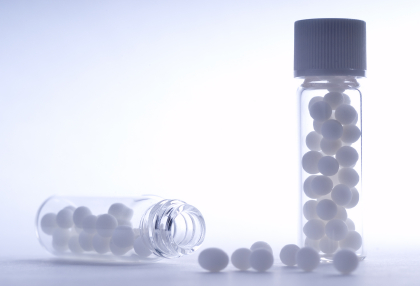Homeopathy is quackery. It can’t be repeated often enough.Homeopathy is The One Quackery To Rule Them All. It is based on prescientific vitalism and principles so addled that one must wonder whether Samuel Hahnemann, the guy who dreamt up this medical system, was a fan of excess alcohol use, opium, marijuana, or some unholy combination of the these. Think about it. The first principle of homeopathy is the law of similars, which states that like cures like. In other words, to relieve a symptom, homeopathy tells us, you must use something that causes that symptom in healthy people. There is no science behind this “principle.” It’s nothing more than sympathetic magic. The second principle of homeopathy is known as the law of infinitesimals. This law states that diluting a homeopathic remedy makes it stronger. Although some of the “weaker” homeopathic remedies might contain a tiny trace of original substance, the “stronger,” more highly diluted remedies typically run around 30C (or even higher), with the “C” meaning a 100-fold dilution. Thus, a 30C dilution consists of 30 serial 100-fold dilutions (always with vigorous shaking, or “succussion,” during each dilution), which, taken together, result in a 10-60-fold dilution. Given that Avagadro’s number is roughly 6 X 1023, which means that a typical 30C dilution is greater than 1036-fold greater than Avagadro’s number. Some of the more “potent” homeopathic remedies go up to 200C and beyond.
To “explain” how something that is so physically impossible based on multiple well-established laws of chemistry and physics can “work,” homeopaths retreat to massive handwaving about the “memory” of water, in which the water somehow “remembers” the properties of the substance that has been diluted out of it and transmits those healing properties somehow—it’s magic!—to the patient. Never mind that whatever “memory” water has lasts on the order of a picosecond. It’s so implausible as to be reasonably considered indistinguishable from impossible for all practical purposes for water to transmit a “memory” of anything from a molecule and through the GI tract in any form that the body could use. It gets even more ridiculous when you consider what sorts of things have been made into homeopathic remedies. The homeopathic flu remedy,Oscillococcinum, for example, is a 200C dilution of Anas Barbariae Hepatis et Cordis Extractum(extract of Muscovy Duck liver and heart, respectively). In terms of clinical effects, the overwhelming evidence, taken as a whole, is that homeopathic remedies to no better than placebo controls, a fact once again emphasized by a recent report from the Australian National Health and Medical Research Council. Truly, I must repeat again: Homeopathy is The One Quackery To Rule Them All.
That’s why it never ceases to amaze me that homeopathic remedies are, for all intents and purposes, not regulated by the FDA in the United States. Well, it is regulated, but barely. As Scott Gavura tells us, to sell a homeopathic remedy, the manufacturer doesn’t have to show that it actually works, nor are there requirements for clinical trials. Basically, thanks to a U.S. Senator who believed in homeopathy, any homeopathic remedy listed in the U.S. Homeopathic Pharmacopoeia (HPUS) is by definition a drug to the FDA. In brief, in 1938, Congress passed the Food, Drugs and Cosmetics Act, whose principle author was Senator Royal Copeland. Copeland, it turns out, was physician who practiced homeopathy. In passing the law, he managed to include all articles monographed in the HPUS in the definition of drugs within the FDCA. As Jann Bellamy puts it, the HPUS is a “source for monographs, identity, methods of manufacture, standards and controls and potency levels of homeopathic products, both prescription and OTC” and “if the product is in the HPUS, it’s legal.”
It’s a very bizarre situation, because the FDA is required to regulate homeopathic remedies as drugs, but at the same time it acknowledges that there is no evidence showing that homeopathy works. Indeed, the FDA recently issued a warning about homeopathic asthma inhalers. I kid you not. Homeopathic asthma inhalers. It’s as though the sellers of these inhalers are trying to kill asthmatic patients.
All of this makes it very interesting, not to mention an opportunity, that the FDA appears to be considering overhauling its regulatory framework for homeopathic products. As a first step, it’s holding a public hearing:
The Food and Drug Administration (FDA) is announcing a public hearing to obtain information and comments from stakeholders about the current use of human drug and biological products labeled as homeopathic, as well as the Agency’s regulatory framework for such products. These products include prescription drugs and biological products labeled as homeopathic and over-the-counter (OTC) drugs labeled as homeopathic. FDA is seeking participants for the public hearing and written comments from all interested parties, including, but not limited to, consumers, patients, caregivers, health care professionals, patient groups, and industry. FDA is seeking input on a number of specific questions, but is interested in any other pertinent information participants would like to share.
The hearing will be two days long, taking place on April 20 and 21 at the FDA White Oak Campus in Silver Spring, MD. Registration is free and available on a first-come, first served basis, and interested parties can even request to give oral testimony. I encourage everyone who can to register and, if you’re unable to register, to offer written comments. You know that DanaUllman will be doing that, if he hasn’t already registered to give pro-homeopathy testimony in front of the committee.
That being said, I have to wonder what on earth new regulation of homeopathy would look like. The FDA announcement states:
Nothing in the FD&C Act exempts drugs labeled as homeopathic from any of the requirements related to approval, adulteration, and misbranding, including labeling requirements. If a drug labeled as homeopathic is a new drug under the FD&C Act, it is subject to the same premarket approval requirements and the same standards for safety and efficacy as all new drugs. A new drug is defined, in part, as any drug that is not generally recognized, among experts qualified by scientific training and experience to evaluate the safety and effectiveness of drugs, as safe and effective for use under the condition prescribed, recommended, or suggested in the labeling thereof. See section 201(p) of the FD&C Act).
So, in other words, if someone thinks up a new homeopathic remedy that’s not already in the HPUS, it’s a new drug and needs to go through all the testing and clinical trials that any other new drug has go through to win FDA approval. Otherwise, anything in the HPUS goes, and the FDA can only regulate homeopathic preparations for purity and to make sure they contain what the HPUS says they should contain. In any case, here is what the FDA is looking for:
FDA is seeking broad public input on the current enforcement policies related to drug products labeled as homeopathic in an effort to better promote and protect the public health. 7 FDA has developed a list of questions to facilitate a more productive discussion at the public hearing. This list is not intended to be exclusive, and FDA encourages comments on other matters related to the development and regulation of drug and biological products labeled as homeopathic. Issues that are of specific interest to the Agency include the following:
- What are consumer and health care provider attitudes towards human drug and biological products labeled as homeopathic?
- What data sources can be identified or shared with FDA so that the Agency can better assess the risks and benefits of drug and biological products labeled as homeopathic?
- Are the current enforcement policies under the CPG appropriate to protect and promote public health in light of the tremendous growth in the homeopathic drug market? Are there alternatives to the current enforcement policies of the CPG that would inform FDA’s regulatory oversight of drugs labeled as homeopathic? If so, please explain.
- Are there areas of the current CPG that could benefit from additional clarity? If so, please explain.
- Is there information regarding the regulation of homeopathic products in other countries that could inform FDA’s thinking in this area?
- A large majority of human drug products labeled as homeopathic are marketed as OTC drugs. These products are available for a wide variety of indications, and many of these indications have never been considered for OTC use under a formal regulatory process. What would be an appropriate regulatory process for evaluating such indications for OTC use?
- Given the wide range of indications on drug products labeled as homeopathic and available OTC, what processes do companies currently use to evaluate whether such 8 products, including their indications for use, are appropriate for marketing as an OTC drug?
- Do consumers and health care providers have adequate information to make informed decisions about drug products labeled as homeopathic? If not, what information, including, for example, information in labeling, would allow consumers and health care providers to be better informed about products labeled as homeopathic?
Of course, ideally, homeopathic products should be regulated as drugs without reference to the HPUS; i.e., just like any other drug. Since the FDA requires evidence of safety and efficacy before it will approve a drug, homeopathic remedies would fail that test, given that homeopathy is The One Quackery To Rule Them All (sorry, couldn’t resist), and no longer be legal to market. I doubt that will happen, given the long history of homeopathy since the 1930s the large market for homeopathic products out there, and, more importantly, the law. As long as the law is what it currently is, there really isn’t a hell of a lot the FDA can do other than try to regulate the purity of homeopathic remedies and crack down on the more egregious health claims made by sellers of homeopathic products.
Still, that would be a start, given that the current Congress is highly unlikely to amend the law to give the FDA more regulatory power and responsibility.
http://scienceblogs.com/


No comments:
Post a Comment